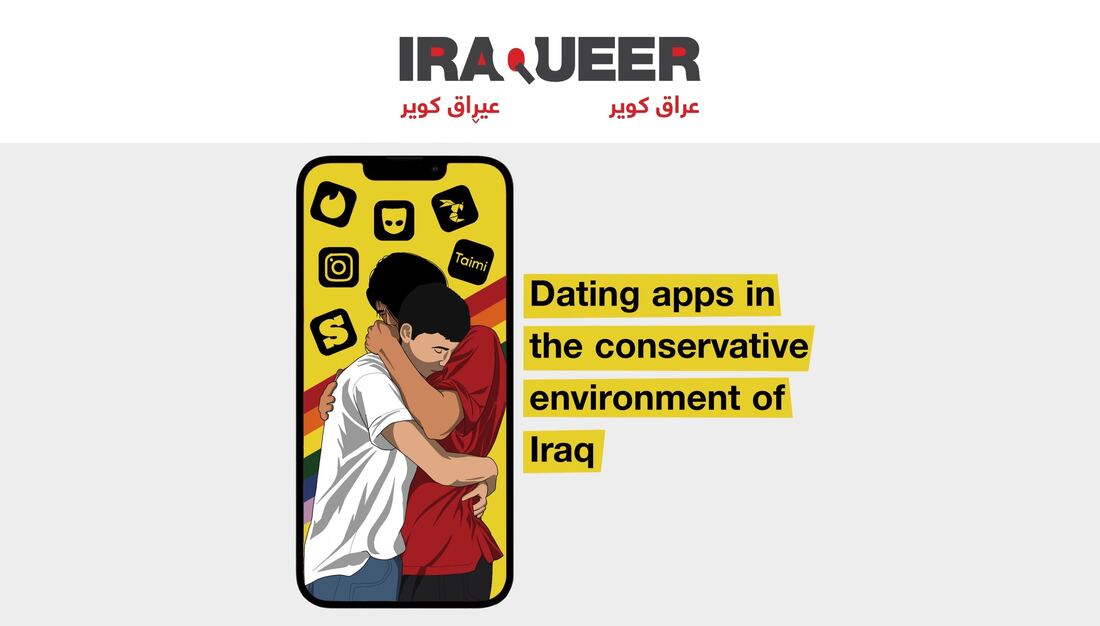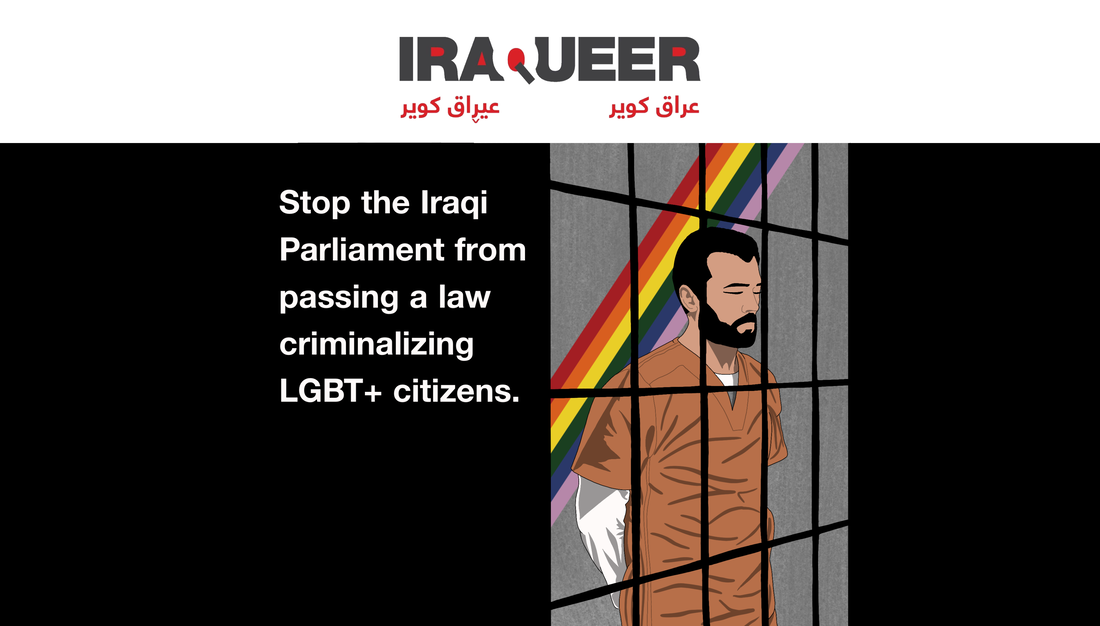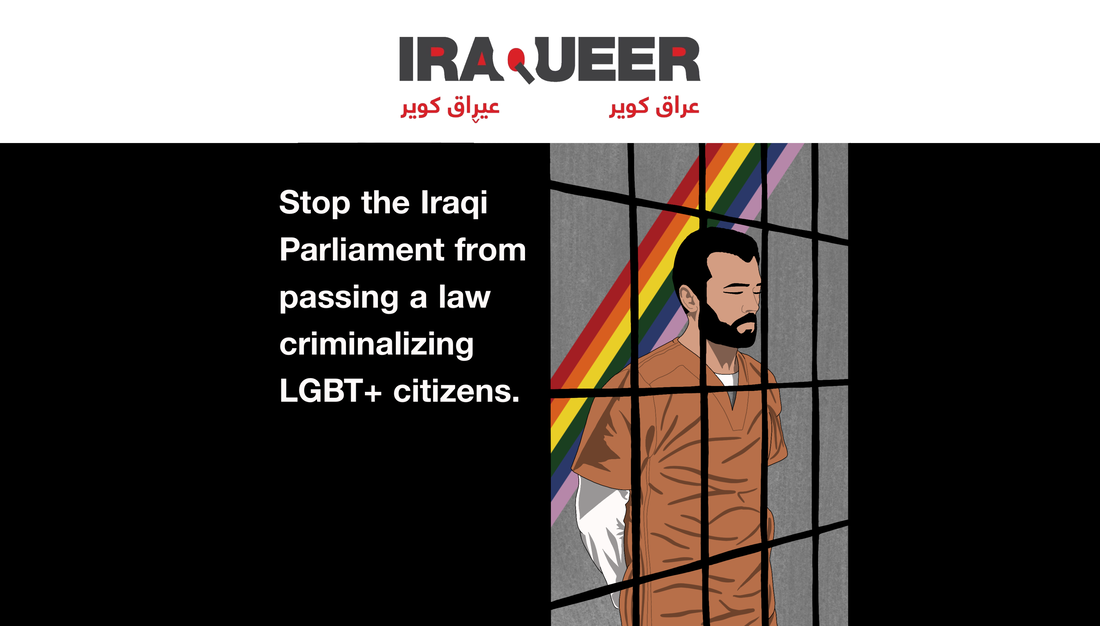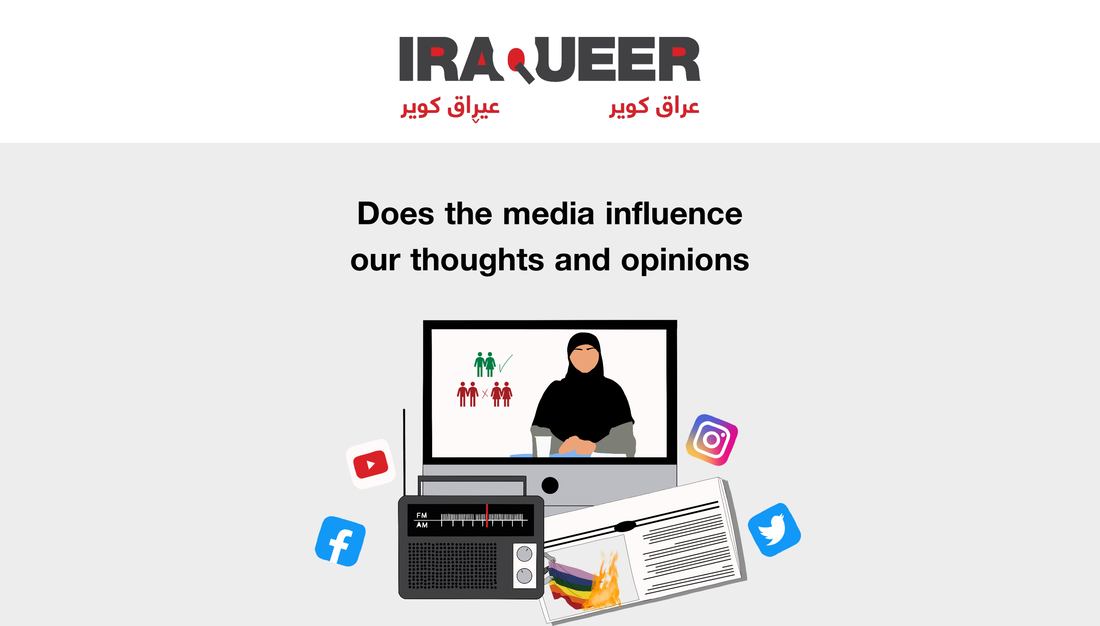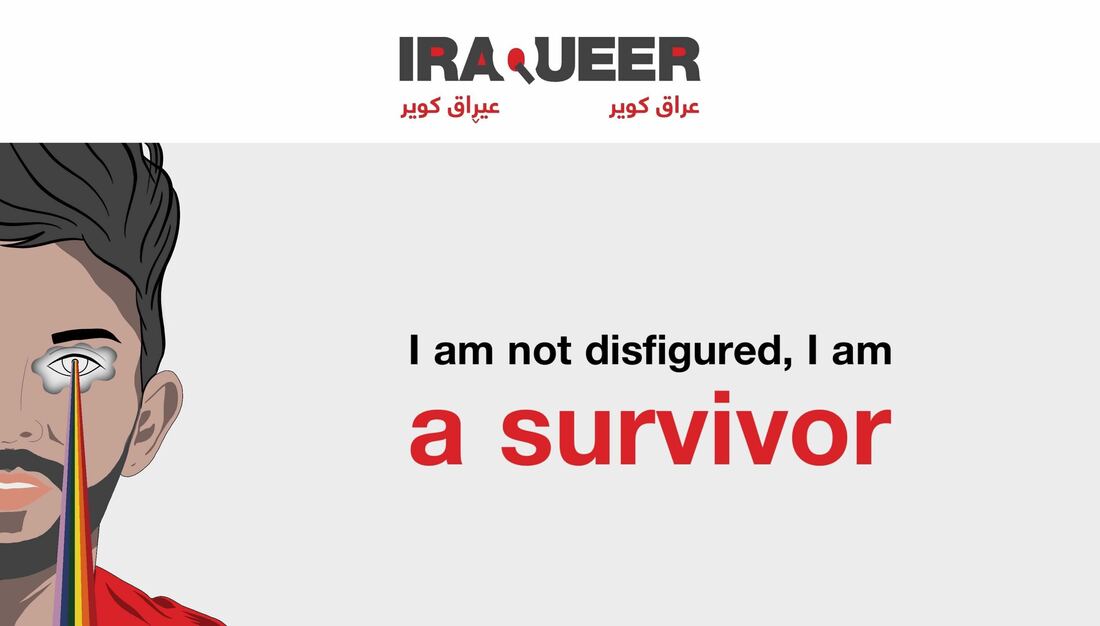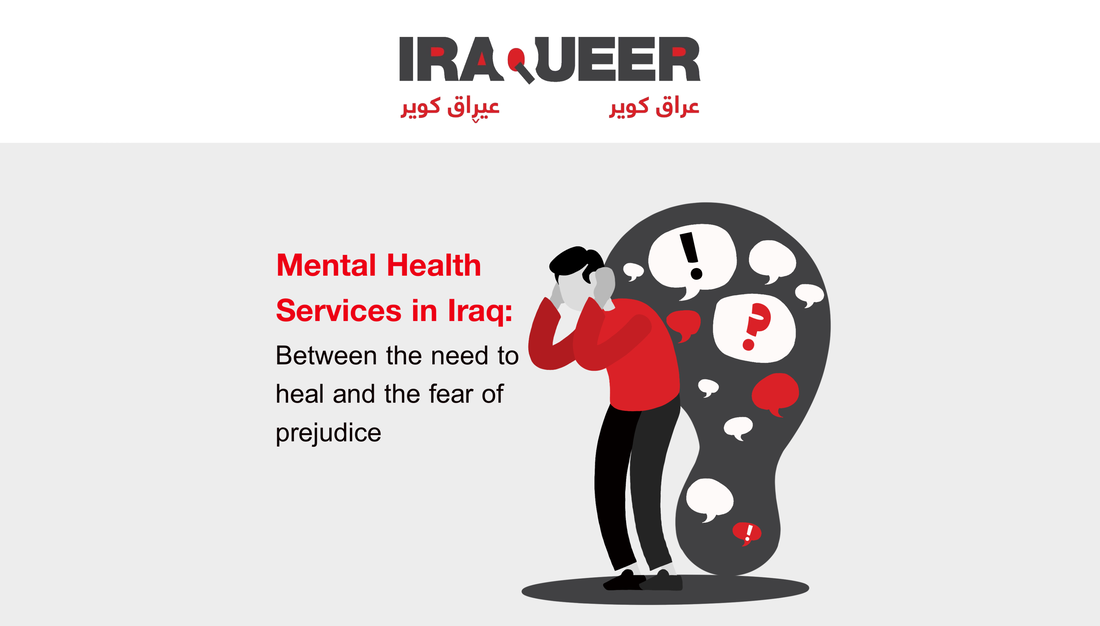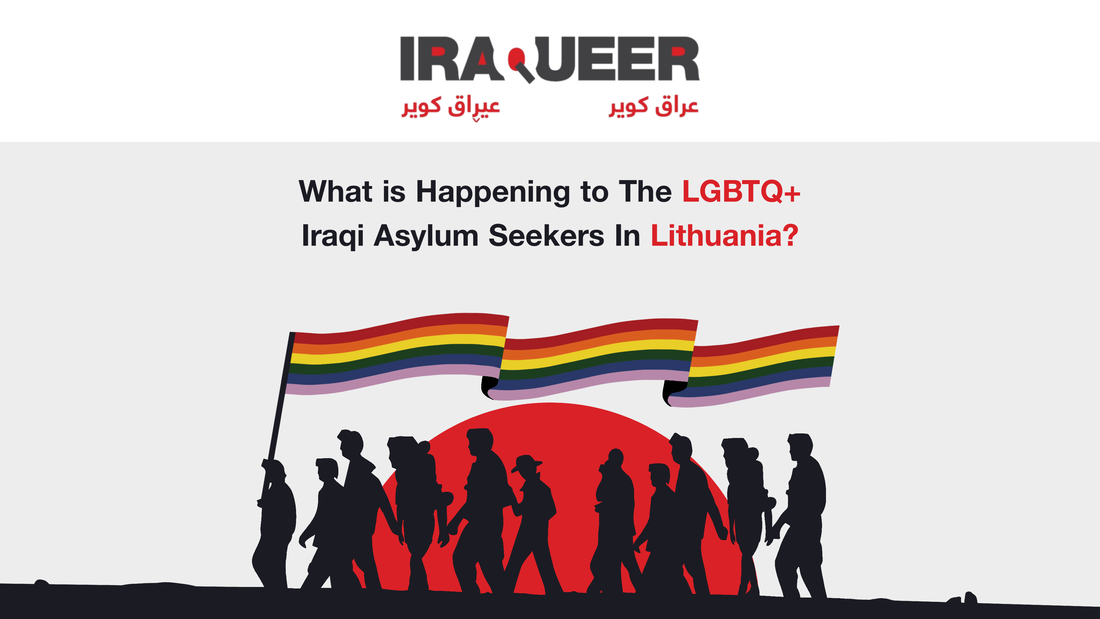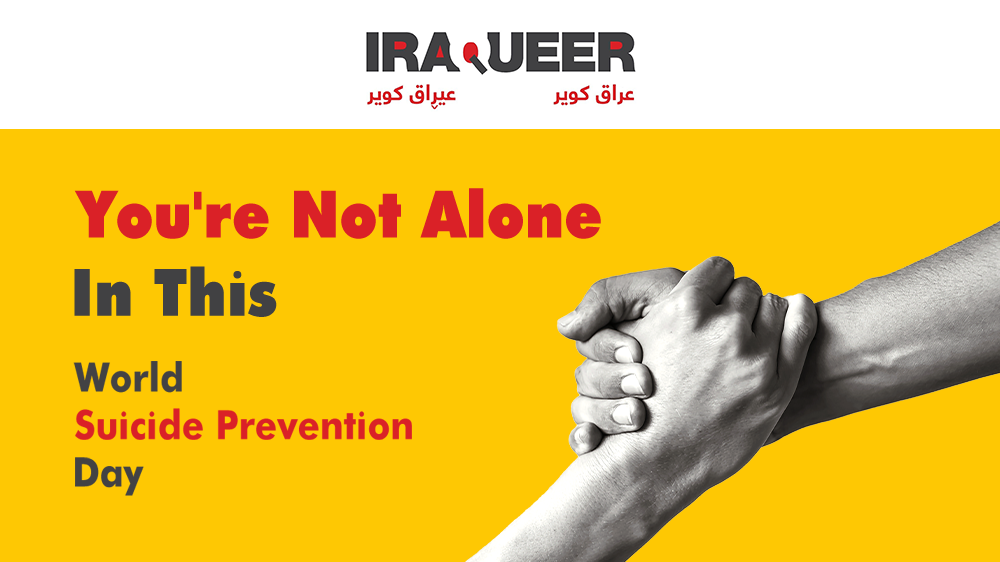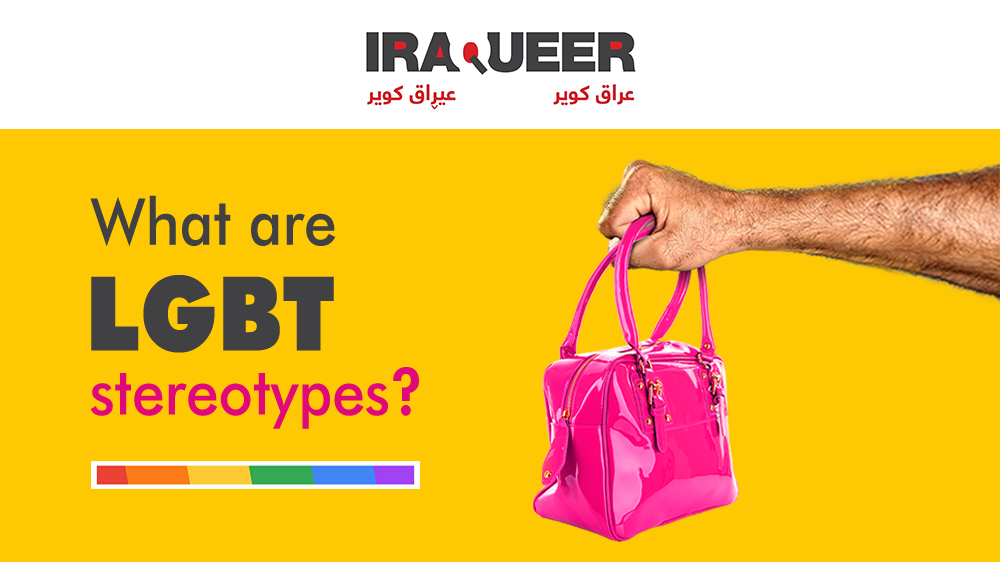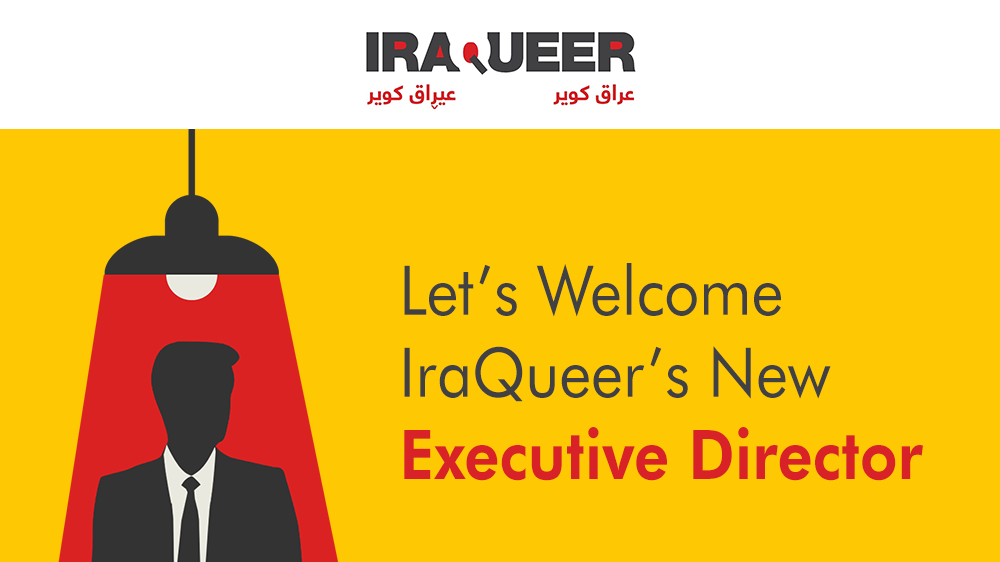|
What is the idea of dating apps?
Dating apps seem like good tools for people who are interested in dating and relationships. These apps ease the whole process of looking for a partner. They are good for shy people who usually are terrified of making the first move and they are a fast way to connect to other people and decide whether or not to spend more time with them. Tinder might be the most popular dating app, but there are other apps too such as Bumble, Her, Grindr and many more. Some of these apps are available to heterosexuals as well as to members of the queer community while some others are used exclusively by the queer individuals and are considered their private space. The danger that surrounds the Iraqi queers who use dating apps? Queers in Iraq are exposed to a greater danger if they use dating apps compared to heterosexuals. If your sexuality and preferences are mentioned in your bio and one of your friends or relatives finds your account, you will be in a big trouble. The majority of teenagers and adults living in Iraq who use dating apps do not feel fully comfortable using them and the fear becomes even more if they were members of the queer community. That is why, many people tend to put fake profile pictures or give wrong location until they spend some time knowing the people they are talking to. Kareem is a queer person from Iraq and he comes to tell us about his personal experience with dating apps. Kareem says that he started using dating apps about ten years ago, and he has been using various types of apps since then including Grindr, Hornet and Tinder. He explains, “From my point of view, I see that some of these apps are helpful so I use them when I’m bored to get to meet new people. Sometimes, I end up making new friends with the people I talk with on these apps so we share our Instagram accounts and we stay in touch. As an Iraqi who lives inside the country, I say that it’s pretty scary to fully show yourself and be yourself on dating apps. You always have to keep a little bit of you hidden until you fully understand what kind of person you are dealing with. If you ask for my advice, then I ask everyone is to stay away from Grindr because it has an extremely toxic environment. The majority of its users are judgmental and they are obsessed with criticizing each other. Hearing criticism over and over again will affect your mental health negatively and makes you hate how you look and how you feel about yourself. Personally, I think that Tinder is one of the best applications that queer people can use in Iraq. Although it is not exclusive for the queer community, but you can still make it as queer as possible through the app settings as you can choose “females only” or “males only” to avoid any encounter with heterosexuals. My advice to everyone, no matter what city you live in, is to not go out on a date with someone who you do not know much about. First, you need to spend some time trying to understand their mentality and their view of the queer community. Only then, you can think of taking the next step. Just because you exchanged Instagram accounts or Facebook accounts or talked for a while, doesn't mean that you can trust them. People can be really different in real life compared to how they look like online. I made such a mistake when I matched with a guy on a dating app a while ago, I added him on Instagram and we talked for a month. I thought a month was enough for me to know him well so I went out with him on a date. I was shocked because the guy was completely different from the person I spoke to on the app. He turned out to be a homophobe even though he was a member of the queer community. He kept telling me how I deserve to be killed for being queer and for supporting the queer community. That experience was terrifying and helped me learn a good lesson. That is why I advise you to be careful because dating apps are available to everyone so you can’t reveal the whole truth of a person through them.” Iraq does not believe in the idea of dating apps Iraq is still considered a conservative country so Iraqis who live in it are still unable to express themselves freely. They are still controlled by their family, tribe, and religion. All these can end anyone's life at any moment. Up to this day, even heterosexuals can’t use dating apps openly. They won’t even find support from their families if they got into a problem with someone they met on dating apps. It’s even harder for members of the queer community to solve any problems related to dating apps and that’s why being extra careful is the best thing to do. Different people have different opinions about dating apps as some think they are totally healthy and helpful in finding good partners while others think of them as means for entertainment or even free spaces for criticism. Dating apps come with some risks that IraQueer likes to shortly mention for the sake of educating people. Some people tend to use dating apps to get information about other users then end up blackmailing them. This alone can put people’s lives in huge danger. Also, dating apps are one reason that pushes people to be shallower by teaching them how to judge other by their looks only. One other risk of using dating apps could be the risk of developing depression and having low self-esteem as a consequence of hearing bad judgments from strangers over and over. In the end, it is up to the individuals. They are free to choose whether to use dating apps or avoid them. IraqQueer cares about the safety of the queer community, and for this we advise you to think carefully before talking about your orientation with people you meet on these apps. Avoid giving full confidence to anyone and make sure to not meet them unless you have enough information and understand of who they really are.
0 Comments
The Iraq News Agency published today that the Iraqi Parliament’s legal committee is organizing a movement inside the parliament to legislate a law prohibiting homosexuality in Iraq and banning any kind of activity related to the queer community. Individuals like Muqtada Al Sader tweeted earlier a proposal for a day dedicated to fight against homosexuality. Official legal experts claimed that a 2001 law punishes homosexuality with death penalty. This proposed law constitutes another attack by Iraqi officials on the LGBT+ community. For nearly two decades, LGBT+ Iraqis have been the victims of rape, torture, and murder. The Iraqi government did not only fail to put an end to these crimes but has actually committed many of them through police forces and armed groups. Iraqi officials have continuously used LGBT+ people to spread fear amongst Iraqis and distract them from the real problems facing Iraq including the failure to form a government and the failure to provide the most basic services for Iraqis. The passage of this law will put LGBT+ Iraqis at great danger as it will allow the Iraqi government and armed groups to be legally protected when committing these crimes. Such a law will also put LGBT+ advocates and allies in danger reducing the already limited spaces available to LGBT+ advocacy inside Iraq and threatening the young queer movement in Iraq. The lives of LGBT+ Iraqis are on the line. We call on allies in the Iraqi government and the international community to act immediately. We urge the international community including the United Nations, European Union, Embassies, and International Organizations to put pressure on Iraq to refrain from passing this law. We also call on Iraqi LGBT+ people to join the fight for queer rights in Iraq. IraQueer is dedicated to advocating for LGBT+ Iraqis and we need to step up as a community to fight these attacks. If you have questions, please reach out to: [email protected] In Solidarity, IraQueer Team.
A few days ago, the University of Kufa announced that its College of Engineering held a seminar under the title “The Psychological Impact of Homosexuality on The Student in The Academic Behavior” as a way to remind mothers and fathers who attended the seminar about the importance of keeping their kids away from any websites, applications, and cartoons that include the topic of homosexuality, or as called in some parts of the news “Deviation”. As it is mentioned in the seminar, homosexuality is a soft war against our societies specifically the Muslim ones.
How do children and teenagers in Iraq learn about homosexuality? It is important to point out that Iraqi educational system lacks the educational curricula that discuss the topic of homosexuality in a scientific manner. Also, our educational centers lack the teachers who can respond to their student’s questions about such topic properly. So how do children and teenagers learn about homosexuality? Most often, children and teenagers learn about homosexuality through warnings and intimidations of their mothers and fathers. A result of that would be creating a negative picture about homosexuality and about the word itself. This is why we see that some children, teenagers, and even adults, in some cases, use the word "homosexual" as a way to offend each other and express the existence of a problem or an illness. Another way for children and teenagers to learn about homosexuality is through their electronic devices. We all see the huge numbers of children who walk around carrying electronic devices through which they are able to watch hundreds of videos, read posts, and follow certain individuals who might teach them wrong information on topics such as sex, homosexuality, and others. Unfortunately, many are now learning about sex through pornography and about homosexuality through social media accounts that distort the image of the LGBT+ community and directly link homosexuality with moral decay. The hatred that children learn to hold against homosexuality and homosexuals does not go away. As these kids grow older, their desire to express that hatred grow with them and push them to look for any opportunity to express it. The problem is that some of them end up realizing that the closest people to them are from the LGBT+ community. Perhaps their brothers, sisters, or closest friends are gay. Or even worse, these children might grow older and realize that they are gay and that is when they start hating themselves or fearing that someone knows about them. How come our educational centers in Iraq divide science into two parts, one that it teaches to students with pride, and one that it associates with moral decay? There is a great number of universities in Iraq that include various university departments and specializations from which teachers, engineers, doctors, nurses and many others graduate every year. The curricula in these educational centers are based on purely scientific foundations and laws that came from experiences, research and studies. The question is, how can universities that believe in science refuse the fact that homosexuality is scientifically proven to not be a mental illness? What is the difference between someone who argues that one plus one equals three and someone who says homosexuality is an illness!? Linking homosexuality to genes, environment and psychological state is not based on any scientific basis and spreading wrong information among students only makes things worse. What if the son, daughter, relative of one the speakers or attendees is an LGBT+ person? LGBT+ people are literally everywhere as they are members of the Iraqi families. We often don't think about it this way because we don't hear about their numbers and we all know why, it's impossible for LGBT+ people to show themselves in public when their lives are in danger. How do you imagine that the daughters and sons of attendees or speakers would feel if they were LGBT+? How much fear do you think they carry knowing that their mothers and fathers are the ones who spread hatred against them and urge others to hurt them? What are the risks of holding seminars like this in Iraq? Iraq suffers from countless problems. Therefore, holding such seminars that spread hatred does not make things any better in the country. Iraqi fathers and mothers need to educate themselves about homosexuality by depending on scientific facts, and they need to learn to accept differences and accept different points of view, because they will not be able to raise happy and open-minded generation if they are not able to accept their own kids as they are. Iraq needs mothers and fathers who give unconditional love to their kids and encourage them to be proud of themselves. The internet, magazines, newspapers, TV, and radio are all media means that aim to communicate with a specific audience. Iraq, like other countries around the world, uses these means to convey news to the Iraqi citizens..... Our question is, to what extent can we rely on the media and its news in a country like Iraq?
In one way or another, media affects our views as well as our opinion about our lives and the lives of others around us. Media, also, changes our level of acceptance or rejection of certain events that take place inside and outside the country. Plus, it constantly changes the angle in which we look at what is around us and perhaps sometimes makes us become extremists as we reject any differences that we notice. Constant exposure to content that imposes negative opinions about a group of people often increases the likelihood of spreading hatred against them and this is exactly what the Iraqi media has been doing against the Iraqi LGBT+ community. Imagine that the media can persuade women to use a specific face cream or men to choose a razor from a particular company by constantly sharing advertisements that either speak positively about a product of a particular company or speak negatively about a product of another company. The situation gets worse as we realize that media affects not only what we want to buy, but also things that have a greater impact on our lives and the lives of those around us, such as sexual orientation, religion, political tendencies and many more. An important point to mention is that not all the information we get from the media is wrong but we have to be careful when choosing our source of information to avoid forming wrong opinions. Does the Iraqi media address the subject of homosexuality and the LGBT+ community? Iraqi media gives full space and freedom to anyone who wants to speak negatively about the LGBT+ community even without providing any supervision to determine whether the information being published is true in the first place. We all can see that it’s easy in Iraq to spread rumors about the LGBT+ community but it is difficult to defend the community and to correct the wrong ideas that are already spread about it. While haters are free to say what they want to say about the LGBT+ community, those who want to defend and help the community end up being threatened, insulted, or even dead. One of the ways in which the Iraqi media negatively affects the Iraqi LGBT+ community is by spreading misconceptions that have no scientific basis. One of the worst misconceptions against the LGBT+ community is that sexual orientation can be changed and controlled. In other words, a gay man who is attracted to men chooses to be like that, and if he had morals, he would have chosen to be attracted to women. For this reason, we see that many of the LGBT+ individuals are blamed and forced to change. Other than that, the Iraqi media uses harsh and disrespectful words to refer to the LGBT+ community, which in turn makes it normal and acceptable to offend the members of the community. The Iraqi media visualizes the LGBT+ community in a negative way and spreads hate speech. Doing that does not only normalize violence and hatred against LGBT+ people but also teaches Iraqis that it is necessary to kill or violate any LGBT+ person. In addition, the Iraqi media often associates sexual orientation and the LGBT+ community with topics of pedophilia or with prostitution and moral decay. Doing that creates an image in people's minds that LGBT+ people have sexual obsession and that all their relationships happen to fulfill their sexual needs but never based on love. That could be a reason why most mothers and fathers reject their LGBT+ daughters and sons and they go ahead to either kill them or force them to get married. As we mentioned previously, frequent exposure to the news that carry a huge amount of hatred against the LGBT+ community in addition to the lack of freedom given to organizations and activists to raise awareness about sexual orientation leads to having generations that think of violence as a way to save the Iraqi morals and values. Understanding what sexual orientation and gender identity mean as well as understanding the meaning of human rights and freedoms can contribute to reducing cases of violence, suicides, and forced marriage. Iraqi parents, Iraqi schools, and Iraqi media may not support homosexuality or the freedom of choice but let’s keep in mind that the Internet makes it easier for us to educate ourselves and understand such topics in a scientific and correct way. Reading and spreading awareness by relying on trusted sources can make a huge positive impact on our Iraqi mentality. "Disfigured" is a word that might be used by some Iraqis to describe a person with special needs. Hearing this word causes huge pain so what if the person with special needs identifies as part of the LGBT+ community while living in a homophobic country like Iraq? The pain seems to be even worse.
People with special needs are the ones who suffer from physical or mental impairment. Sometimes, they are born with the impairment while some other times the impairment is a result of an accident, an injury, or a disease. Iraqis with special needs rarely live in a healthy environment where they are truly comfortable and accepted since the majority of them are surrounded by people, including adults, who often tend to avoid them or abuse them. In addition to that, people with special needs who live in Iraq struggle with a government that does not provide them with medical services that would enable them to live in a good condition. According to an article published in 2021 on “Nas” website, the percentage of Iraqis with special needs reached up to 13%, which translates to more than five million people. Among these millions, Hassan comes forward to tell us his story of being a gay person with special needs. Hassan is a 19-year-old Iraqi guy who lives in Babil with his family of seven that he describes to be as religiously and tribally strict as all the other families that live in villages. To understand Hassan's story, we need to go back in time several years, specifically to his childhood. Although Hassan was in good health and did not suffer from any disease when he was born, he got diagnosed with a very rare disease called “Retinoblastoma” when he was only two years old. His illness led to the extraction of his left eye and the removal of some muscles and bones of his face, so he ended up with one eye and a face that looked quite different compared to other kids his age. Living with one eye caused Hassan a lot of abuse by kids in both his neighborhood and school. Hassan says, “I was suffering on a daily basis so I thought several times about quitting school and staying home to avoid the pain, but somehow I was able to continue regardless of my suffering. Despite the difficulties I dealt with during my school years, I survived, I graduated, and I got enrolled in the College of Pharmacy. The illness I suffered from as well as the way my face looked after the surgery were not the only differences I had compared to others around me. During my teenage years, specifically at the age of fourteen, I started noticing the happiness and excitement I would feel when I dress and act like a woman. Plus, I never really got attracted to the opposite sex. At first, I thought these feelings were the result of the trauma and the abuse that I had been subjected to throughout my life. I was thinking about it all the time so I decided to search it online and eventually I learned about sexual orientation. I read about homosexuality, transsexuality, and all the other classifications that I never knew about before. I learned about my sexual orientation as well as about the fact that other people had the same desires as me and after all, I was not alone or odd. Realizing these things gave me a great sense of belonging and allowed me to look at things from a completely different angle. My teenage years were extremely difficult and messy since I was trying to understand, accept, and build myself from one side while I was being violated by my family to be who they wanted me to be from the other side. My father, along with my other family members, hated my feminine side, so they tried their best to change me by abusing me. They used to tie my hands and legs, beat me, then lock me inside a room in the house for days or sometimes weeks. Despite my need for seeking help back at that time, I chose not to do anything about it because I was too scared. None of that violence happened because of my sexual orientation rather it happened because of a haircut that I used to have, a face cream that I used to buy to treat my acnes, or for buying a certain type of shampoo. Doing any of these things was enough for my family to hurt me. When I turned seventeen, another phase in my life began as I had my first mobile phone which I used to make friends on social media. Some of them stood by my side and we became good friends while others bullied me and did not accept me. One day, my father looked through my phone and became suspicious about my sexuality that is also when the violence got worse. As things got worse, I came to the conclusion that I will never be able to change my family so I had to do whatever it takes to keep myself alive and safe. Luckily, I can say that things started getting better as I became a university student. I am no longer spending a lot of time around my family so I am dealing with less violence and problems. Life is also way better in college compared to how my life was during school although I still hear a lot of criticism about my feminine appearance. ButI am no longer hearing bullies and jokes about my eye and this is good for me.” IraQueer is interested to know more Iraqis with special needs from the LGBT+ community to share their stories with others from inside and outside the community to raise awareness about the importance of accepting differences of all kinds. Mental health services encompass a range of services that are meant to address anything from an isolated or a daily mental health challenge to long-standing mental illnesses. They include modalities like support groups, medication, therapy and many more. People who provide these services include social workers, psychologists and psychiatrists. These different services are often provided by different professionals. While psychotherapists are equipped to provide psychotherapy, most of them are not qualified to prescribe medication. Likewise, while psychiatrists are qualified to prescribe medication, most of them are not trained to provide psychotherapy.
Therapy also called psychotherapy or counseling, is a process of working with a licensed professional, in person or online, to identify and resolve the emotional, behavioral, and psychological problems someone has. Therapy offers people a safe space to talk about their difficult emotions and feelings, their mental health, and their painful life experiences like war, divorce, childhood trauma, abuse, death of a close person, and many more hard experiences that a person alone can’t deal with or heal from. Therapy can be used alone or combined with medication and other modalities. Mental Health Services are for everybody, and they are a great tool that people can use at any point in their lives to help themselves find peace, function better, and heal from beliefs and ideas that cause them pain and fear. Throughout several generations, Iraqis have been through many tragic events including wars, poverty, economic instability, threat of militias, homophobic and transphobic crimes. Some of these events might have ended but their effects and memories remain in people’s heads. All these negative memories cause people to be more violent, depressed, and suicidal. That’s why mental health services are extremely important as they give people a chance to process their negative experiences to understand why they behave in a certain way or feel a certain feeling. Seeking services like therapy isn’t always going to be fun or easy. During your therapy sessions, you might experience feelings like anger or sadness. These feelings come back as you talk with your therapist about the painful emotions that you might have been hiding for long years. With that being said, you have to be able to distinguish between a good and a bad mental health professional. A good mental health professional will not make you feel sad or guilty intentionally rather they will walk with you through the painful details of a certain experience then give you tips on how to overcome it and heal from it. A toxic mental health professional, however, is going to blame you for the way you feel and try to change you. Keep in mind that not all mental health professionals are qualified as some of them could be licensed, well known, and have years of experience but still fail to understand their patients. Some mental health professionals might cause you more pain by being judgmental or unethical. Having that experience with a person you think of as a supporter might give you a negative impression about mental health services in general. When a mental health professional is unqualified, they usually use their personal beliefs to judge their patient so if that therapist’s beliefs stand against homosexuality, they will for sure blame the patient for their sexuality, make them feel guilty, and try to change them. Our advice is to take some time to choose your therapist or psychiatrist and be careful with the personal details you share with them in your first few sessions. Seeking mental health services could be quite expensive and even with that, Iraqis struggle with unqualified mental health professionals who get paid huge amounts of money. We are not stating that all Iraqi mental health professionals are unqualified but a certain percentage of LGBTQ+ Iraqis continue to struggle when looking for therapists and psychiatrists who know how to separate their religious beliefs and social views from their duty to be professional and helpful to their patients. In 2020, IraQueer made a survey that included over 240 Iraqis from the LGBTQ+ community who come from different cities. Part of the survey covers the subject of mental health to know how many have sought mental health services and how their experience was. Some of the ones who visited psychiatrists or psychotherapists mentioned that they refused to visit a professional in the cities they live in so a person who lives in Najaf, for example, preferred to go to a service provider located in Baghdad rather than visiting one in Najaf. Visiting a service provider in the same city the LGBTQ+ individual lives in can put them in danger and bring troubles. Noor is an Iraqi lesbian and one of the 240 Iraqis who filled our survey. She describes her experience by saying, “At some point in my life, I felt the need to visit a psychiatrist with my girlfriend so we chose one who was well known. We assumed he was going to be professional and supportive but things didn’t go well at all. During our session with him, he asked me to kiss my girlfriend in front of him and gave me hints that he wanted to have sex with me.” “I only agreed to visit an Iraqi psychiatrist because I thought he was an LGBTQ+ ally. The psychiatrist wasn’t an ally neither as good as I expected him to be. I went to his clinic and as we were talking, he opened his cabinet, took out some pills, and advised me to use them. When I got home, I searched on Google for the ingredients, usage, and effects of these pills. It turned out they were used to cure homosexuals and turn them straight or as some like to call it “normal”, said a gay Iraq man. Another guy was asked by his psychiatrist to visit him home and another who was advised to pray and read Quran to heal from homosexuality and become straight. As an Iraqi LGBTQ+ person, have you ever had unpleasant experience with an Iraqi mental health professional? You can write your experience and send it to us to help us get a clear picture of the situation inside Iraq. The situation for LGBTQ+ Iraqis inside Iraq
Not a single city in Iraq is safe for any LGBTQ+ Iraqi citizen. The fear of death haunts every lesbian, gay, bisexual and transgender/transsexual person in the country. While certain cities in Iraq, including Baghdad and the cities of the Kurdish region, are seen as less conservative, safer, and more liberal, deaths and arrests remain common everywhere in Iraq to prove to us that things can be quiet for a while but can get really bad in the blink of an eye. The arrest of the individuals who were accused of being LGBTQ+ by the security forces on April 1st of this year is one example of the abuse the community faces inside the region. Life isn’t any easier for LGBTQ+ Iraqis outside the region as Iraqis continue to ask IraQueer and other NGOs for shelter, mental support, financial support, and advice to flee to another country. What’s going on in Lithuanian? “The Lithuanian migrant camp that's “like a prison””, is an article written by Maëva Poulet that explains the situation and the miserable daily life that thousands of asylum seekers have been living for months inside the camps. The article states that since the beginning of 2021, around 4,124 people have fled their home countries and entered Lithuania illegally and that almost half of them are from Iraq. People who live in these camps aren’t receiving meals that fill their hunger and are forced to stay inside the dirty camps dealing with all the stress. The 28-year-old asylum seeker, Marc says, “They’re pushing people to go back voluntarily: when agents come into the center, it’s not to ask about our living conditions but to ask us, “Have you decided to go back to your country?” After this whole journey … It’s utterly frustrating.” Abass, who’s an Iraqi gay asylum seeker, tells IraQueer about his own situation and the messy life he has since he arrived to the camps. Abass says, “I have been in Lithuania for five months so far. When others inside the camp knew I was gay, they started looking at me as if I was a monster. I was dealing with a lot of bullying and stress until I was moved, along with many others, to a camp that was supposed to be for LGBTQ+ people only and it had 45 individuals in it. The problem wasn’t ever resolved because I, along with the rest of the LGBTQ+ Iraqi asylum seekers, are still dealing with a lot of bullying and homophobia inside a camp that was supposed to be accommodating LGBTQ+ people only. It turned out that majority of the ones we have been sharing the camp with aren’t really from the LGBTQ+ community! These people applied for asylum as gays because they knew that getting their application approved was much easier like that since homosexuals are seen as a marginalized minority. The problem with these people is that they’re not only liars, but they are homophobes too and that means that I have to avoid them as much as possible. Other than the mess inside the camp with these homophobes, the Lithuania government is not providing us with enough food and while the majority gets paid, we don’t get anything and we don’t even know why. Our applications, including mine, got rejected and when we asked about the reason they said that Iraq is a safe country for LGBTQ+ people so we all can go back there and live safely.” The purpose of this blog This blog is a small introduction to the report that IraQueer is currently working on. The main goal of the report is to tell the stories of the LGBTQ+ Iraqis who have been living inside these camps for months, to explain the current situation and danger that surrounds the community inside Iraq, and to clarify to the Lithuanian government that Iraq, until this moment, isn’t safe for LGBTQ+ people. IraQueer, with all its hard work to help the community members, is unable to fix the situation. “LGBTQI youth are almost five times as likely to have attempted suicide compared to heterosexual youth,” says The Trevor Project, which is an American nonprofit organization that focuses on suicide prevention among the LGBTQI community.
Suicide is one major factor of death among youth. Based on the data of The Trevor Project, queer youth who come from highly rejecting families are 8.4 times likely to have attempted suicide. The hatred that comes from a family member tends to be the hardest to deal with and with our queer Iraqi youth having no support from the government, the pressure is even harder to handle. Many of us have friends or family members from the LGBTQI community who are struggling. We hear them talking about how much they want to escape to another country where they feel safe enough to come out of the closet, marry their soul mates, and have kids, or simply just avoid being killed. Some of us, however, have lost those friends who didn’t get any chance to feel heard or seen. Those friends took their own lives as a response to bullying, homophobia, abuse, and depression. Suicide isn’t a joke, and people who think of committing suicide aren’t crazy or weak. LGBTQI people are at the highest risk for suicide when their family and friends know about their sexuality. When a family knows that their daughter or son is queer, forced marriage is one thing the family considers as a solution while other families choose honor killing if she was a female or abandonment if he was a male. One of several painful deaths is the death of a young Iraqi girl named Tara. Tara was a victim of hatred and homophobia that made her take away her life when she was only 20 years old. Today, Kawthar, who was Tara’s close friend, tells us Tara’s story and she says, “Tara was only a college student when her life turned upside down. She was studying engineering and she was aiming to become a successful engineer. If she was still alive, she would have been 24 by now. Tara loved animals, especially birds, and her favorite colors were green and maroon. She enjoyed singing and reading books and she had big goals that she was aiming to achieve. Tara was a lesbian and she was in a happy relationship with a girl that she was in love with. The two girls agreed on leaving Iraq, and they had everything planned. They agreed on everything including how to get out of Iraq, where to go, and when to leave but unfortunately, things did not go well. Tara had a cousin who proposed to her multiple times but got rejected. That cousin knew that there was someone in Tara’s life, he just didn’t know that it was a girl. While Tara was busy planning her way out and living her daily life, the cousin thought it would be a good idea to hack Tara’s phone, read all her messages, and see all her pictures with her partner, then show everything to her parents and propose to her. He thought that doing so means that she won’t be able to reject him anymore. That evil cousin got what he wanted. He hacked her phone, and indeed, Tara was with someone, but just not with a guy as the cousin expected. He did not hesitate to show everything to her parents who beat her up and thought about killing her. Her cousin, however, wanted things to go as he planned, so he proposed to her again and the family did not mind forcing her to get married to him this time. After a while of abuse and arguing, Tara got engaged to him. The family made sure that Tara does not escape or run to someone for help so they took away her phone and locked her in the house. Tara could not ask anyone for help neither her girlfriend so what they did was waiting and hoping to find a solution. It seemed that Tara had ideas going in her head other than finding a way out of that house. It seemed that the idea of death was actually bringing her peace. Few days before her wedding, Tara took away her life. And just like that, Tara was gone! I didn’t even know about her death, not until her sister told me. All I knew was that she preferred death over being touched by a man. I remember in her last days, when we used to talk, Tara used to mention things like how much she loved me and how proud she was to know me. She used to tell me that there was nothing wrong with me and asked me to stay strong and not let our society destroy me. Also, she used to tell me about how exhausted she was feeling. Unfortunately, back in Tara’s time, there was no organization inside the country that she or her girlfriend could have asked for help from and no one else would have been by their side. There wasn’t really much hope for the two because if there was, she would not have chosen death. I never imagined that she would commit suicide so hearing about her death was really painful. I still I’ve not recovered from it until this day. And the most annoying thing is that during all these years, I’ve not told anyone about her story because I too, don’t have a family that would love me if I tell them I’m lesbian. I had to keep her story a secret because if I tell people about it they would say things like she deserved what happened to her or that she was a bad person and a bad daughter. So I had to keep all sadness and anger inside and keep living as nothing happened. Until today, I don’t know how I was able to pull myself out of that terrifying phase. All I can say is that it was a very hard time for me. What I hope is that no one gets through what Tara got through and that we all keep in mind that we’ll die one day so let’s not rush it. Her soul is resting in peace and I’m sure she’s now in a better place.” As a queer person living in a homophobic country, keep in mind that you’re going through a battle every single day and that you’re a hero for winning it by staying alive. Know that you’re not standing alone and that your life can change and things can get better. If you’re someone who is dealing with suicidal thoughts and need someone to talk to, contact [email protected]. We’ll make sure to refer you to a queer Iraqi doctor who can provide you with the proper emotional support and be available to listen to you. Always know that you’re not alone in this. A simple definition of a stereotype is any wrong idea or belief that people have about a thing or a group of people. The role of stereotypes, in general, is to put people in certain categories so it’s easier to predict what a person is and isn’t and as a result, easier to control. We have tens of different stereotypes around the world that are toxic and unfair. LGBT stereotypes are one example and these that tend to focus on controlling individuals of the LGBT community. LGBT stereotypes affect everybody from the community and stop them from being their true selves so the sooner we break them, the better.
The constant pressure on LGBT people to behave in a certain way and talk in a certain tone or dress a certain type of clothes in order to be labeled gay or bi or trans puts huge pressure on them. That pressure makes a lot of them hate who they are or ignore their own needs for years to avoid being abused and criticized. Examples of these stereotypes exist everywhere around the world, and here are some of the common ones: “You’re a man, how come you wear makeup? You must be gay” This one could be too common that everyone knows about. Makeup is believed to be a tool that girls use to get boy’s attention which is an old belief that we don’t even need to talk about. Makeup is one way for people to take care of themselves and to look beautiful. Men who wear makeup aren’t all gay and are definitely not in any way less masculine than the ones who don’t wear makeup. Men who wear makeup, regardless of their sexuality, are the bravest because they choose to do what they want over being accepted by others. It’s important to mention that not only men are victims here because women are raised and taught to believe that men who wear makeup aren’t good enough for them to date and that they are only gays who have not yet come out. It’s important to raise awareness about this topic so our society gets to a level of acceptance that allows everyone to pick who to date without being affected by all these old restrictions. “If you keep wearing T-shirts and hoodies all the time, no guy will ever want you” Let’s get one thing straight, women are criticized regardless of what clothes they’re wearing. It’s always too short, or too long, or too big in size, or too small in size to be worn. Bi girls might be the ones to be criticized the most for their style because when they wear clothes the society considers femme, they are seen as straight but pretending to be bi for attention. If bi girls, on the other hand, wear clothes the society considers too masculine, then they’re considered lesbians. “You dye your hair pink or green, there’s no way you’re straight” In Iraq, black, blond, and brown are considered to be the professional and accepted hair colors so dying your hair with any colors other than these three can put you in trouble. You can be rejected in a job interview simply because your hair is pink because the employer thinks that she/he has the responsibility of getting the company new employees who don’t affect the company’s reputation negatively. Offering a person with colored hair a job can put the company at risk of losing its good reputation and therefore its customers. Other than the possibility of losing the job opportunity, you’re probably going to get criticized and have your character questioned on a daily basis by strangers and friends, and members of your family. You have to think millions of times before getting your hair dyed and you might in the end regret doing it because of the troubles that it could get you in. “You can’t be considered fully a man unless you can get a woman pregnant” There’s no doubt that transgender people deal with the highest rate of discrimination and unfortunately, a high percentage of them commit suicide every year due to hatred and abuse. Conservative societies classify their citizens into women and men and put on each, the responsibility to achieving certain things in order to be considered normal and fit. Transmen aren’t seen as real men because they can’t make a woman pregnant and therefore are constantly compared to cisgender men who seem in this case to be privileged. “Femme men are all gays and tomboys are all lesbians” Men have to have deep voices, big bodies, and short hair, this is how most people identify men and believe the rest who don’t have these characteristics to be gay. Gay men, specifically femme gay men, are seen as weak and therefore aren’t good enough to join the military or the police or do any other jobs that are considered manly. Similarly, all tomboys are expected to grow up to be lesbians. A lot of people tend to assume tomboys sexual preferences and therefore their sexuality. To make it clear, a lot of women enjoy having short hair, playing video games, and enjoy driving trucks so let’s learn to normalize all this. LGBT Stereotypes are too many and are too unfair and most of these assumptions that people make about each other tend to be false in the end. No one can predict someone’s gender or sexuality by looking at their nails or their clothes or the color of their hair. People, regardless of how they like to label themselves, must have the freedom to make any changes to their style that allow them to feel proud and happy when looking in the mirror. Let’s all work to unlearn the toxic habits that we were once taught and learn to give each other a safe space to be who we want to be. IraQueer is excited to welcome a new Executive Director who will start leading the organization this month. The new ED brings with him years of experience working with Iraqi and international organizations advocating for human rights of different groups. The board and the team are eager to support the new ED over the course of the coming months and years. Amir Ashour, the outgoing ED and the founder and chair of the board said "Being the founder of IraQueer, the organization and the future movements are the most important things to me. It was key to appoint someone who is passionate and dedicated for the work we do. All of us at the board believe this new ED is the right person to lead us. We are all committed to ensuring his success, therefore, the success of the organization and the movement."
IraQueer's new ED has chosen to stay anonymous for the time being as he hopes to be able to conduct more fieldwork inside Iraq. As he starts his new role, the new ED shared some of his thoughts with IraQueer's community. He said "For the past nine years, I have joined several organizations fighting for the human rights of different groups. In each job, I committed to advocating for marginalized groups, whether it was women, refugees and IDPs, ISIS survivors, or LGBT+ people in Iraq. Working with these communities gave me the chance to see myself and the world differently. Today, I believe that I am a better person because of them. Joining IraQueer was an easy choice. I have been following the organization's work since it was established. The work IraQueer has done for the Queer community in Iraq has inspired me and encouraged me to join the team. With my new colleagues, we are dedicated to reaching out to even more Iraqis. By working with them, we want to expand our advocacy work locally and internationally and have all their voices heard. Today as I am joining this amazing team, I am excited to work with them, and with members of the board, our funders, and partners. I would like to thank everyone for their trust and support. I know together we can build a better future for the organization and for all the Queer Iraqis." |

